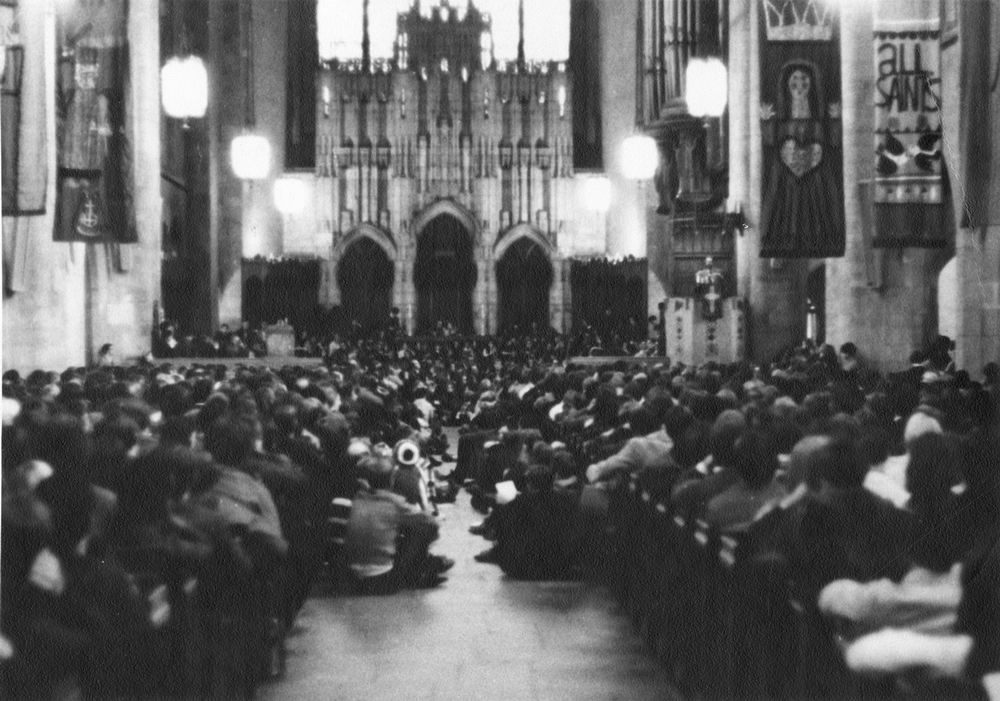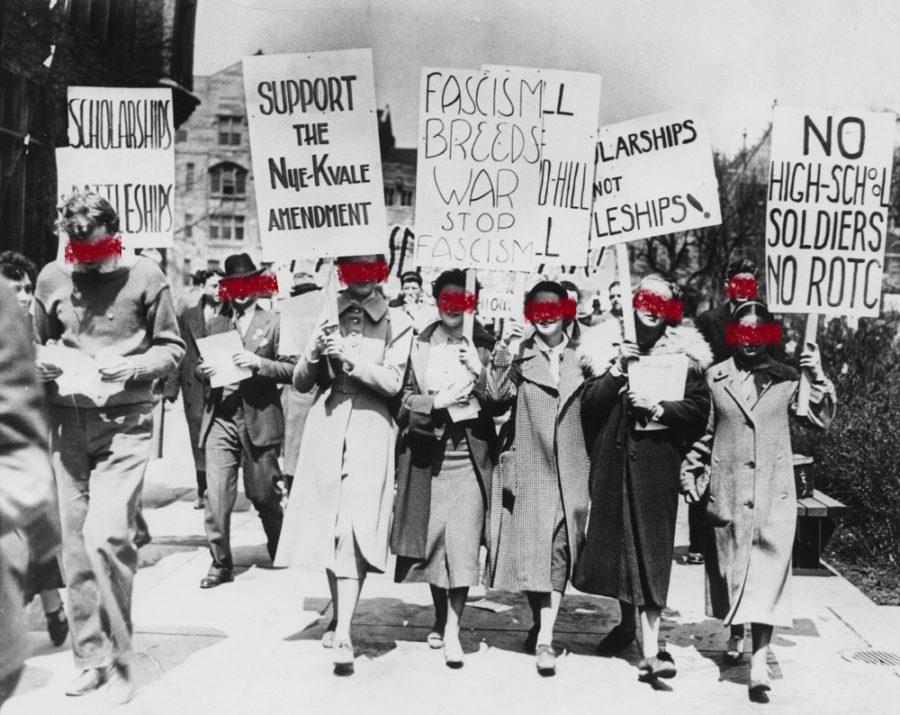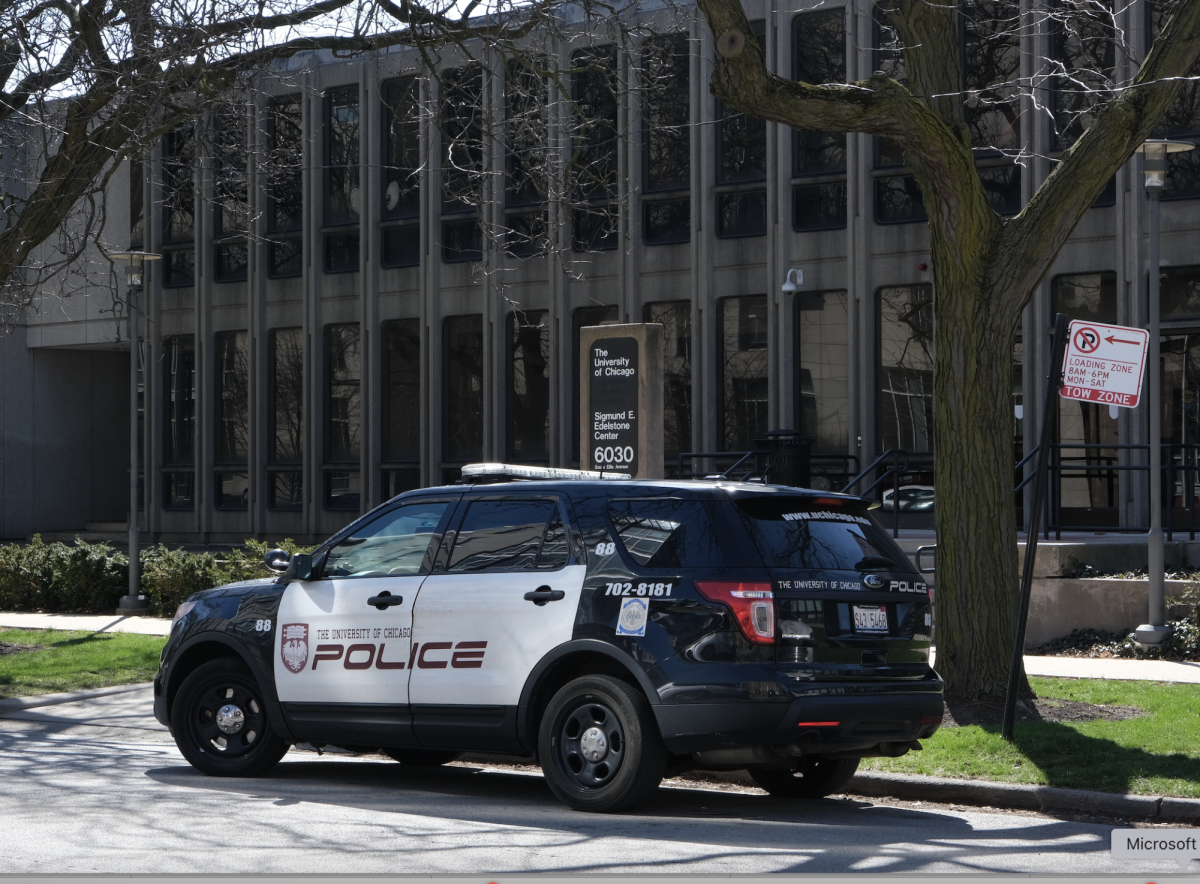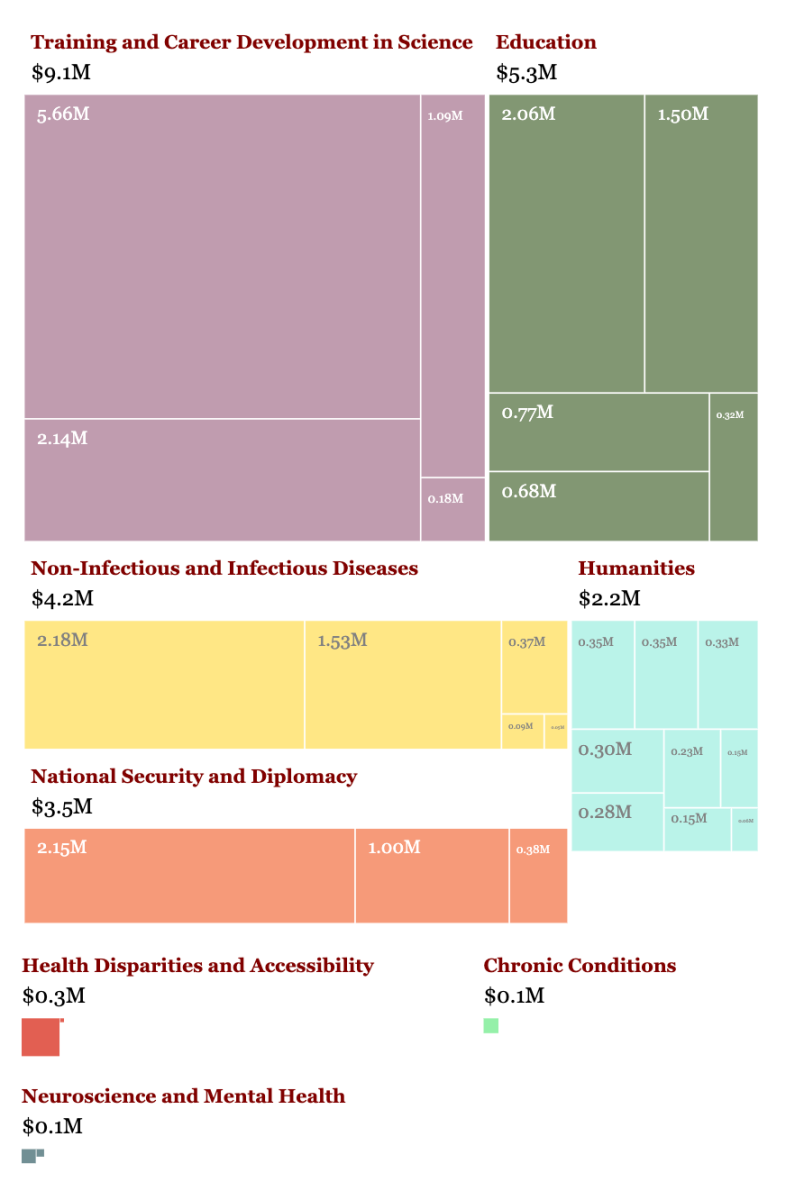The University of Chicago has had a long and robust history of student activism. From protesting against the Vietnam War to the Apartheid divestment protests of the 1990s, students have been exercising their freedom to speak out against administrative policies since the institution was established. Protest is certainly not unique to the University of Chicago: according to The Atlantic, student activism has been on the uptick across American colleges since 2014; more than 160 protests occurred on college campuses during the fall of 2014 alone. Many protests have focused on issues such as racial profiling, police brutality, and a push for students to have more power within their universities’ administrations.
Activism at the University of Chicago exists in a unique space, however. The University is often perceived as a place of privilege in an area that has historically been neglected and marginalized. So who are the students who are heavily involved in student action? What are their backgrounds, how did they get involved in protest and activism, and what issues are they passionate about?
For student activists like third-year Ryn Seidewitz, organizing protests has become something of a second nature. When she was 16, she got involved in Occupy Wall Street, a social movement against economic and social inequality worldwide.
“Activism and political action has been a huge part of my adolescent life. It is what has made me an adult,” Seidewitz said.
Both Seidewitz and fourth-year Johnathan Guy began engaging in political activism in high school. Guy’s parents were both public school teachers, and his father ran their local teachers’ union. His family played a large role in sparking his passion for civic engagement, and this enthusiasm inspired him to participate in his first protest as a high school sophomore after a law was passed that eliminated collective bargaining rights for public employees in Wisconsin in 2011.
“Hundreds of thousands of people came to the state capitol to protest for several weeks. I was there almost every day. I helped lead people from my school there and organized carpools. That was just a very formative experience, like baptism by fire,” Guy said.
Unlike Seidewitz and Guy, third-year Jessica Law did not participate in student activism until college. Law’s first rally was a protest at the Regenstein Library in response to police shootings of black men. She now works with UChicago Student Action (UCSA), an RSO founded in 2004 and dedicated to fighting for racial, economic, gender, and environmental justice on campus.
“[Before college], I cared about social issues in a very removed way. I did student stuff and some small volunteer things. Looking at it now, I don’t think they were very meaningful activities,” Law said.
Elijah Wolter is a third-year who is also involved in UCSA. Like Law, Wolter was introduced to organized activism and protest upon entering the University.
“I had done a bit of political work [in the past], like canvassing for the Democratic Party in 2014. In terms of doing political work like direct action, I had not done any before I got involved [with UCSA] during my first year. After seeing the work they were doing, I decided, ‘Okay, I am going to set aside time and commit to doing this.’”
All of these activists are heavily involved in leading their respective organizations. Seidewitz is the co-president of the Phoenix Survivors Alliance (PSA), an organization that provides advocacy and peer support to survivors of sexual violence. PSA was founded in 2014, the year Seidewitz entered the College. That same year, an anonymous group published the “Hyde Park List,” a list of students who had allegedly demonstrated “troubling behavior towards romantic and sexual partners.” In response to the Hyde Park List, a group called the UChicago Electronic Army, an anonymous group of hackers, infiltrated the Moda Facebook page and threatened to assault students from the Class of 2018.
In response to these threats, a group of students organized a protest that gave sexual assault survivors a place to speak out about their experiences. It was there that Seidewitz not only attended her first protest on campus, but also witnessed the formation of PSA as a student organization.
For the past few years, PSA has targeted the University’s lack of compliance with Title IX requirements. The group’s persistence helped lead to the implementation of Haven, an online program that addresses the issues of sexual violence, stalking, and harassment. Seidewitz said that this training is required by federal law, and all students at the University of Chicago were required to complete it in the summer of 2016.
“Two years ago, [the administration] told us that Haven was never going to happen. Now it’s here, and the committee that convenes to address sexual assault is getting double the amount of training it used to receive. We’ve heard that this has actually made a difference,” Seidewitz said.
According to Seidewitz, PSA is currently in the midst of reassessing its goals as an organization. Its main goals are to create a strategy for addressing rape culture and to figure out ways to hold students accountable for their actions.
“Previously, it was all about Title IX. Now we want to expand our focus. We have two arms: one is cultural, working with our peers and trying to educate, and the other hand is trying to have the administration to comply with federal law. Even though they have changed all these policies on paper, they still remain very anti-survivor in many ways,” Seidewitz said.
Like Seidewitz, Law and Wolter are active leaders of a student active initiative: Fair Budget UChicago. They are currently fighting for the implementation of a $15 minimum wage for all workers on campus. They additionally collaborate with organizations based outside of Hyde Park.
“I was part of the Good Jobs Taskforce with the People’s Lobby. We were fighting for the passage of legislation that would have forced large employers of Cook County to pay a living wage of at least $15 an hour to all their employees or pay into a charge that would be put into social services that employees rely on, because they are making poverty wages,” Wolter said. This version of the bill did not end up passing.
Fair Budget UChicago also works to promote disability justice in Chicago. In the past, members have pressured the University to delegate more resources to students who have disabilities, and they held a teach-in on the issue last November.

UCSA also endeavors to convince the University to divest from fossil fuels; an effort that is spearheaded by students like Guy.
“There hasn’t been a lot of transparency around the University’s precise holdings in fossil fuels. They gave a number a few a years ago, [and it was found that] around three to four percent of the money in the endowment is going towards investment in fossil fuels, which is still a lot.”
Fossil fuel investment doesn’t necessarily mean that the University is directly investing in the fossil fuel industry—the University also invests in firms that have stakes in the fossil fuel industry.
“The trick is going to investment firms who are offering mutual funds that don’t have any fossil fuels in them…their products have been pre-screened for fossil fuel investment,” Guy said.
Guy also expressed concern over the humanitarian ramifications of investment in fossil fuels.
“Around 350,000 people die per year [from causes linked] to climate change, and that number will increase to five million by the year 2030. That’s an existential rate of death and destruction that is unparalleled to any other crisis that we have ever faced. Most of UCSA’s strategy has been [to reach] the Board of Trustees, and to put pressure on the stakeholders. There’s been a lot of dialogue with the administration over the past four years, and there was a referendum in which 71 percent of the students voted in favor of divestment.”
The divestment activists, like all of the students who were interviewed for this article, claimed that the administration wasn’t as responsive to their concerns as it could be.
According to Seidewitz, there were several reasons as to why the administration does not comply with Title IX requirements.
“First of all, there isn’t really an enforcement mechanism in Title IX. The only enforcement mechanism is that you can file complaints [against the university] and the U.S. government comes down and investigates those claims. Compliance also requires reprioritizing resources, and the University doesn’t want to do that. They want to spend money on things like new dormitories and new centers; things that make them look good.”
An example of non-compliance was evident in the ways survivors were treated after reporting an assault.
“When you go to report your assault, it’s supposed to trigger an investigation. The person who reported does not have to be involved in any way. That does not happen. In fact, the University encourages students to not reach that complaint status, so that they can keep their numbers down…. The administration is set up to perpetuate itself, and to maintain its reputation…and to minimize problems,” Seidewitz said.
University spokesperson Marielle Sainvilus wrote in an e-mail that numerous changes have been made to administrative policies around Title IX since 2015, including mandatory sexual misconduct prevention and response training for all members of the University community and the redesigning of sexual misconduct training provided to all first-year students during the orientation program. Sainvilus noted that the University recently created the position of deputy Title IX coordinator, enhanced training to staff in College Housing, and increased training for the Disciplinary Committee (which adjudicates sexual misconduct complaints where a student is the accused). She also commented that the administration appointed a Title IX student advisory board and developed print resources for faculty and staff who are required to report instances of sexual misconduct to the Title IX Coordinator.
Law agrees with Seidewitz’s assessment, noting that the University administration often uses the Kalven Report as a way to justify their inaction and reluctance to meet with student activists. The Kalven Report, written in 1967, states that the University should be a space of free and unbiased inquiry, and therefore notes that “it should not permit itself to be diverted from its mission into playing the role of a second rate political force or influence.”
“When we said that we wanted the University to have a $15 minimum wage, [Provost Daniel Diermeier] said that it would be political, and that it would go against the University’s stance on being apolitical,” Law said.
According to Law, the administration usually responds to protesters negatively or ignores them altogether.
“A lot of the things that my organization has done have been brushed off, or not really cared about.”
Wolter agreed with this sentiment, stating that one of the ways in which Fair Budget UChicago put pressure on administration was by protesting at the Waldorf Astoria, where University trustee Ken Griffin lived.
“It was pretty much just radio silence. It wasn’t like they outright rejected a meeting, but it was just a matter of us building up enough power and pressure. Once they had to publicly state whether or not they would meet with us, they agreed to meet with us.”
Guy claims that the administration often uses the Kalven Report as a shield in order to justify their position against fossil fuel divestment.
“There were times when the administration promised us meetings with the Board of Trustees, and they walked back on their promise. They said that they thought it would be an inappropriate form of engagement…. In response, at the end of my second year, there was this huge protest on campus called the ‘Walk Back,’ in which we all dressed in casual business attire and literally walked backwards from the Booth School of Business to Levi Hall. As a result of that, [we ended up] meeting with some stakeholders.”
The administration’s statement claimed that these characterizations were inaccurate.
“The Kalven Report was raised in the context of the contention that the University should ‘lead by example’ on the minimum wage issue, for the purpose of influencing local and national minimum wage policies. The University does not have a position on these policies. Decisions on compensation and financial support are made for the benefit of the University, its faculty, students and staff, without regard to how such decisions affect particular political interests.
In addition to the minimum wage discussion that you mentioned, administration leaders routinely meet with students on a wide range of issues, including numerous recent discussions related to undocumented immigrants and DACA, Title IX, diversity and inclusion, and other concerns as they emerge,” Marielle Sainvilus said in a University statement.
Regardless of their backgrounds, all of the student activists interviewed for this article have one goal in common: to create a more democratic and responsive administration.
Besides seeing changes in the administration, Wolter wants to see a shift in the model of labor at the University for both professors and students.
“We need to break away from the ideology of constant work and constant achievement for both professors and students. What you have now is people doing backbreaking work all the time. There is a lot of institutional pressure because your standing as a professor and as a student is based on how much you can produce all the time. This is really untenable and self-destructive.”
Law also envisions a university that is more accessible to students and faculty.
“I want to have a university that is democratically run, in which other constituencies of the University…have the power to make decisions. For the next few years, I would want to see us moving in that direction. Signs of progress would be seen in smaller scale things, like the $15 minimum wage.”
However, all of the activists acknowledged that while they want to see changes in the administration, they have work to do in regards to the structures of their respective student organizations. They noted that though student activism is often perceived as a “white activity” on campus, the privilege of attending an elite school like the University of Chicago means that they need to be more cognizant of their place in their community. While they possess the belief that everyone should have the ability to organize, many note that activism is not for everyone. Seidewitz stated she is well aware of the fact that her upbringing has provided her with opportunities that were not easily available for others.
“I went to a private school, and I was educated in very progressive modes of education my entire life. My ability to do this work comes from a place of privilege, but my desire to do this work comes from a place of gendered oppression,” Seidewitz said.
She noted that activism on campus has a problem with being “really white.”
“People have definitely said that about PSA: that sexual assault activism is often considered a ‘white woman’s issue.’ [This] is something that we try to combat in PSA. It’s about creating an environment in which every woman’s voice is welcome.”
Law, however, cautioned against removing oneself from activism over concerns of privilege.
“I am a first-generation student, and I am Asian. I am also of the belief that anyone can and should be able to organize. I think that the stance that people can be too privileged to organize is a false alarm. I think that being conscious and attuned to people’s positions in the world…is really important. For example, it’s true that UChicago Student Action is really white, which definitely does reflect the demographics of the University. It also requires a degree of dedication and awareness [about] how to organize with people of color.”
Guy notes that though it is very easy to act like a quarterback from the sidelines, those who critique student activism often don’t concern themselves with ways of improving it.
“I think UCSA is [productive], but it frustrates me that people who criticize organizing see what’s going wrong as an excuse to not get involved.”
Wolter, who comes from a working-class family in Iowa, said that the issues he fights for are very personal to him.
“It’s not because of some abstract or moral reason that I think all workers should get 15 dollars an hour. I know that people need money to get by, and what they’re getting now isn’t enough because I’m living it. I know other people who are living it.”
These students view activism as a way to mitigate and fight against inequity and an unfair world. Because of that, Guy feels that people should attempt to be more involved in student action.
“Citizens have a moral responsibility and obligation to change things. When there are things going wrong, I definitely think that everybody has a political responsibility to rectify structural inequalities.”
In contrast, Wolter doesn’t concern himself with those that are not involved in student action, and instead focuses on the work that he is involved with.
“At the end of the day, I know that there are students that do not share my values…. I’m much less concerned with convincing them or winning them over than getting people politically involved who have felt voiceless and pushed aside. I’m involved in organizing for people who do share my values. I don’t hold ill will for people who are not involved or wag my finger at them, but [organizing] is something that I’ve benefited from.”
Seidewitz notes that not all students are comfortable with organizing, which she says is completely fine.
“Activism is something that you have to come to. You can’t be forced or guilted into it…it’s a slow build of belief. There are a lot of ways to be political in the world, not just organizing. Organizing is not for everyone.”
Even though activism isn’t the right thing for everyone, it can still be accessible to anyone. While Wolter acknowledges that he has privilege from being white and male, he believes that he still has a place in student activism.
“When I started, I struggled with…feeling guilty about participating. I was worried that I was shutting people out or talking over others by being involved. I think what gave me more clarity was understanding that even I, as a white man, don’t have the power to implement my vision into the world. [However], working with others and coming together with people can only result in a net positive. At the end of the day, none of us have much political power to begin with.”
Wolter wants to create a space in which activism is open to anyone, and eventually a world in which activism isn’t needed anymore.
“I’ve never seen [activism] as trying to help other people. Instead, I see it as working with other people to reach similar goals. I think that there are definitely a lot of legitimate concerns regarding activism, and [it’s important to make activism] an accessible space.”
The people who are engaged in student action are a diverse and eclectic group of people. Despite their differences, Seidewitz believes that activists are united by their earnest desire to make a space in which all students are enfranchised.
“There are ways for everyone to be involved in the ways they want to be involved. They should take the time to explore the different groups on campus. Find your niche; it’s not all or nothing. We are a political group, but politics is so, so personal. People should be free to engage in it however they want. For me, student action is fulfilling, and this is how I choose to engage with the issues that are important to me.”









